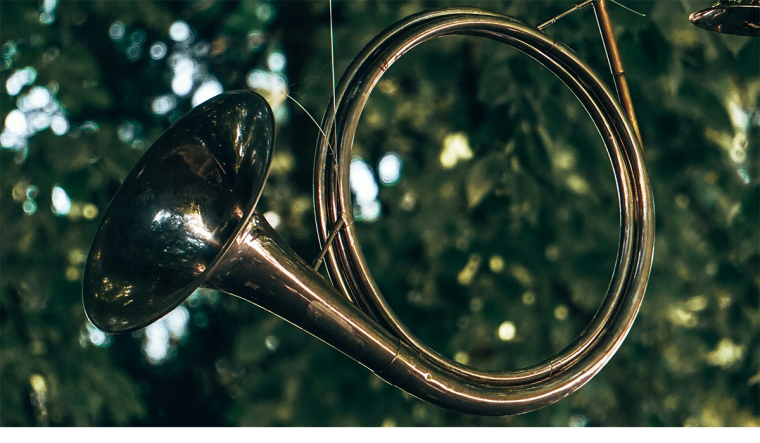In our Craft Capsules series, authors reveal the personal and particular ways they approach the art of writing. This is no. 208.

If you’ve ever played a brass or wind instrument, you know how much the whole body contributes to each note. Picking up the saxophone or oboe again after months of not playing, your facial muscles and diaphragm fatigue in moments, you can’t breathe properly, and the few notes you can manage sound terrible. The body, as much as the instrument, produces the sound. And the body, as much as the instrument, must be kept in tune.
Speaking, of course, is also done with the body—the throat, the mouth, and the breath, but also the rest of our body too, if we’re really aware of it. Once, I had the opportunity to sing with an opera diva friend, and her voice seemed to vibrate from every pore of her skin—her open mouth just like one more sound-producing pore.
Writing, too, is done with the body—the entire body.
In ancient Greece, before the advent of Western dualistic consciousness, the body was much more considered. In the Iliad, Achilles understands in terms of his physical / corporeal sensations. His breath grows shallow, his heart quivers, his blood rushes, his adrenalin surges, his stomach cramps, his eyes dart or cloud over, and only then does Achilles know how to act. For ancient Greeks, in the time of the Iliad at least, cause and effect were flipped, and a body’s responses were understood to cause a person’s actions. Memories arose from the lungs. A heartbeat could sense danger. The pressurized, dilating rush of adrenaline seemed like another person, almost like a guardian angel, who showed up whenever needed, and took over one’s bodily frame. The stomach of an Iliad-era Greek was the seat of that person’s responses—heaving, sinking, loosening, jumping at the slightest stimulus. Ancient Greeks must have been highly sensitive people.
Nowadays, we fold all of those bodily sensations, all of that psychosomatic feedback, the entire construct of knowing and understanding, into a single inadequate word—“feelings.” But we should remember that our bodies are constantly in motion: blood is coursing, organs and tissues are expanding and contracting, electrical signals transmit to and from the brain. The cells inside our eyes are shifting in response to light. Our noses are riddled with receptor cells and neurons. A spidery web of proprioceptor nerves reacts to the slightest changes in the body’s position. All of these bodily motions combine and enter our consciousness as feelings.
My own writing process has transformed as I’ve come to these realizations about my body. Now I almost always begin my writing sessions by stretching, and then I keep my laptop and notebooks on a standing desk, often continuing to stretch or even dance as I write or type out lines and sentences. I might switch to sitting for a bit, focusing on my posture and my breathing, before I switch to standing up again.
The form of my writing has also changed with these new awarenesses and practices. My phrases are more breath-driven, which I know because I often speak out loud what I’m writing as I’m writing it. My narratives are more patient, and my imagery is more sensation-driven. Even the content of my body-based writing has shifted into realms that feel far more vulnerable, generous, and inclusive.
In short, I’m a better writer, now that I’m more mindful of my body’s role in my creative processes. It’s more than “being in touch with my feelings.” It’s the realization that the body, the entire body, actually creates the written work.
Geoff Bouvier’s new book, Us From Nothing (Black Lawrence Press, 2024), is a poetic history that spans from the Big Bang to the near future.
image credit: Leon Kohle.






